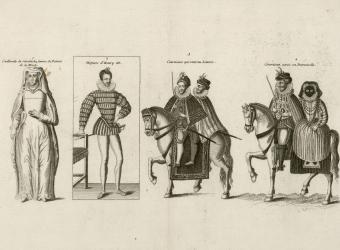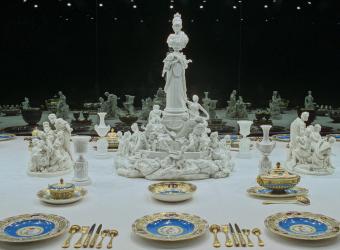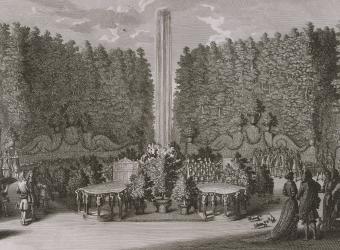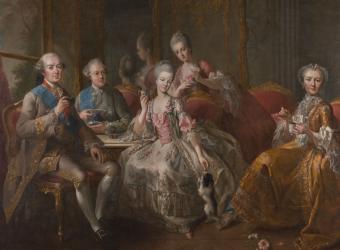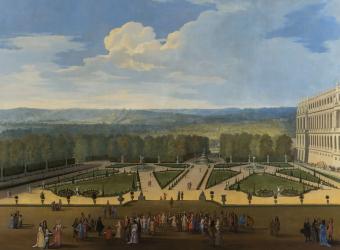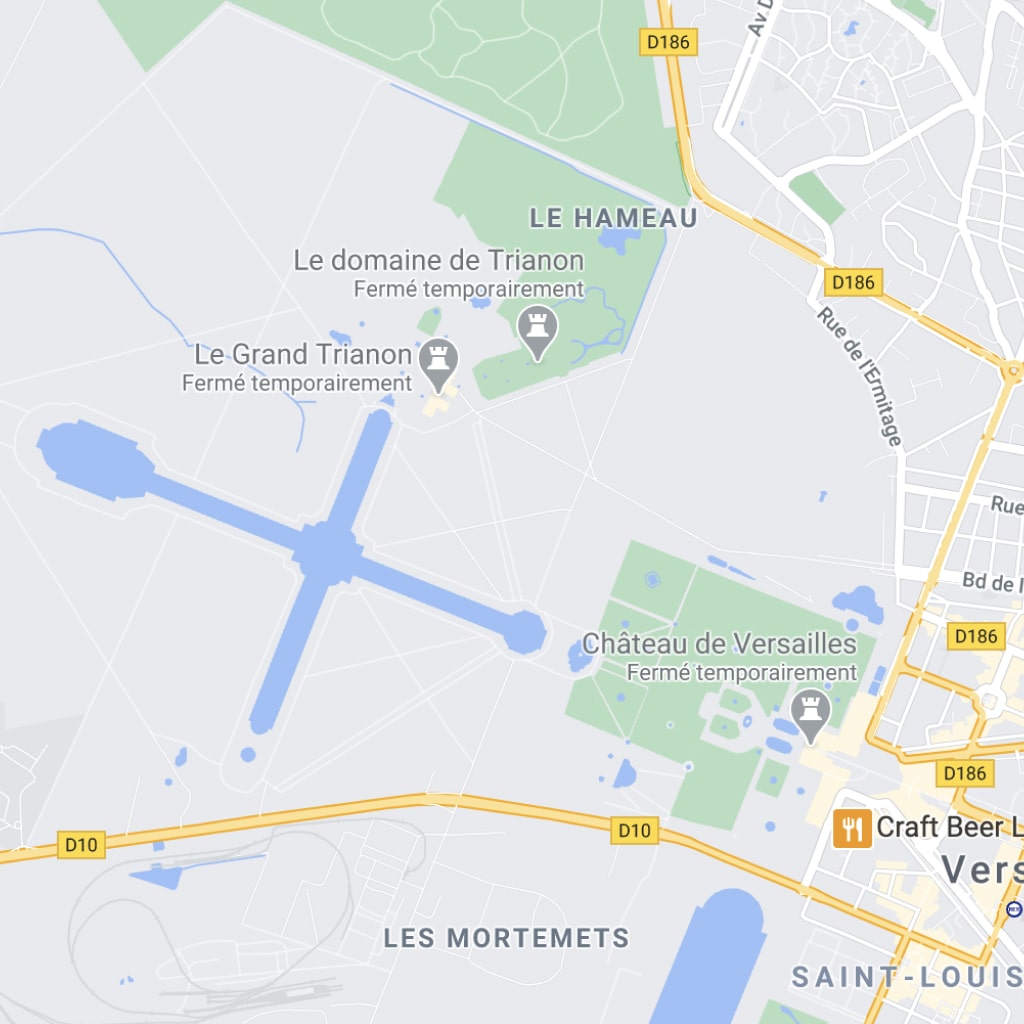During the 17th century, theologians, and in particular Bossuet, developed the idea of the divine right of kings, to demonstrate that power and authority were of divine origin. The exercise of power was defined by the fundamental laws of the kingdom, i.e. the laws of succession and inalienability of the realm, which gave the sovereign full command of the Estate and excluded women from ascending the throne.
Places of power Councils
The King’s Council
After the death of Mazarin, his First Minister, in 1661, Louis XIV decided not to reassign this role and took charge of all the affairs of the kingdom himself. The king governed his territory surrounded by his ministers, secretaries of State and officers, etc. The King’s Council was the body of councils in which the king declared his will and defined his actions. By 1715 there were four main councils presided over by the king.
The High Council
The High Council discussed all the important matters of national and foreign policy and met at least three times a week. It included the king and the ministers of State.
The Dispatch Council
This was a council of high-level administration which met every two weeks. It was attended by the chancellor, ministers of State, secretaries of State and the head of the financial council and was open to members of the royal family. Monsieur, the king’s brother, was allowed to attend. It was also the occasion for instruction in politics for the Dauphin and his sons.
The Financial Council
This council met twice a week and attributed an increasingly important role to Colbert, who was Controller General of Finances.
The Council of Conscience
This council, principally composed of the king and his confessor, was in charge of the distribution of ecclesiastical funding. The meetings were not open to the Court, only the king and a few trusted persons in key positions. Veritable dynasties of service to the State attended these meetings, such as the Colberts, the Le Telliers, and the Phélyppeauxs.




